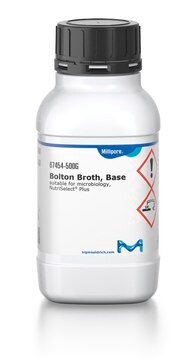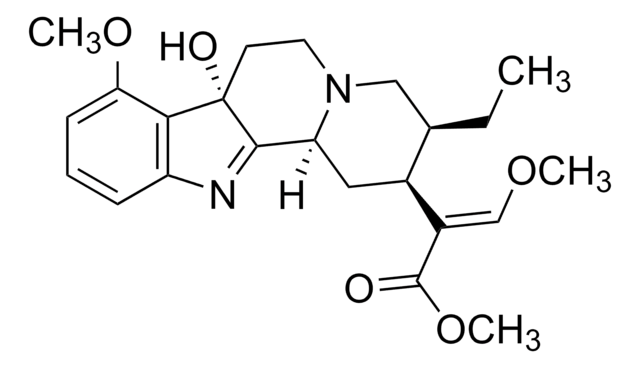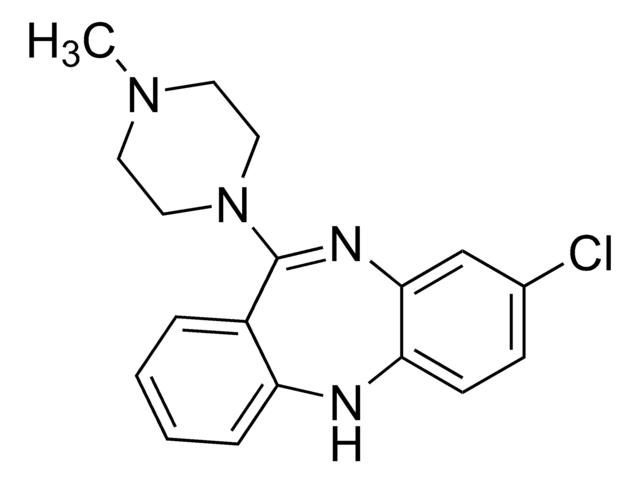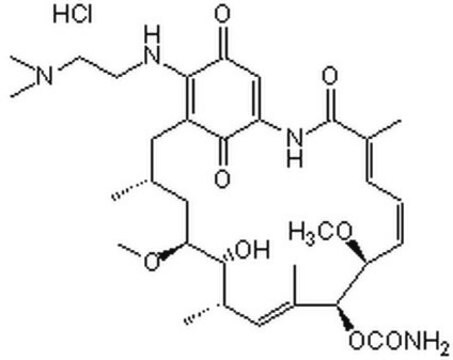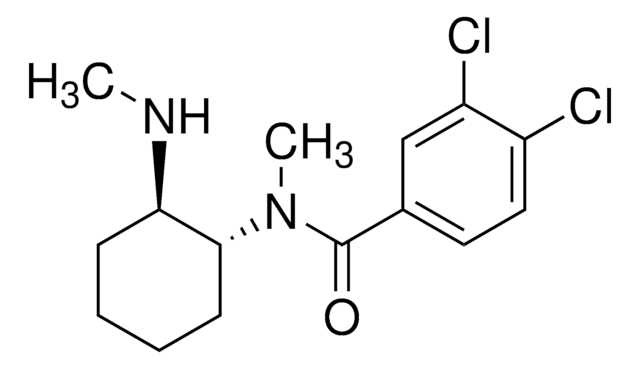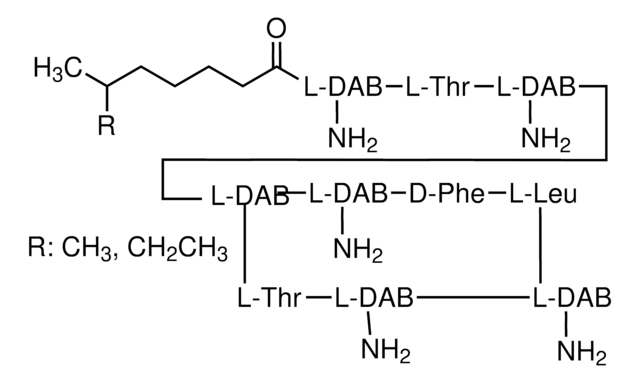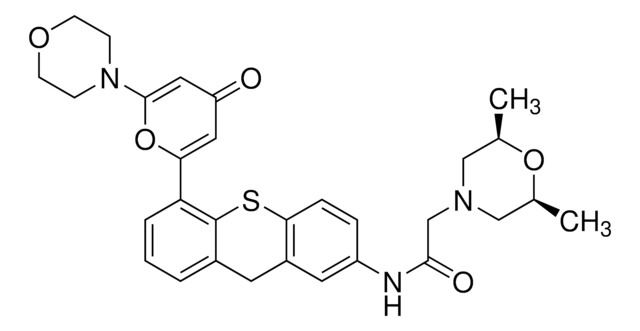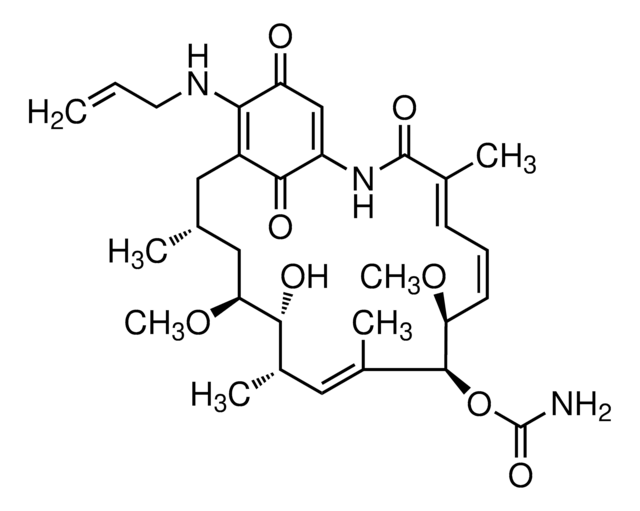D5193
17-Dimethylaminoethylamino-17-demethoxygeldanamycin
Synonym(s):
17-DMAG
Sign Into View Organizational & Contract Pricing
All Photos(1)
About This Item
Empirical Formula (Hill Notation):
C32H48N4O8
Molecular Weight:
616.75
UNSPSC Code:
51102829
NACRES:
NA.85
Recommended Products
biological source
synthetic
Quality Level
form
powder
color
dark red-purple to black
solubility
ethanol: ~10 mg/mL (lit.)
DMSO: >25 mg/mL (lit.)
antibiotic activity spectrum
neoplastics
Mode of action
protein synthesis | interferes
storage temp.
−20°C
General description
Chemical structure: benzenoid
Application
17-DMAG has been used to block the NF-κB inflammatory cascade in the murine model. It a potential therapeutic agent for non-small-cell lung cancers (NSCLC).
Biochem/physiol Actions
17-DMAG is a heat shock protein (HSP90) inhibitor. 17-DMAG is a more potent analog of geldanamycin. It inhibits cancer growth and promotes apoptosis in multiple cell lines. 17-DMAG is a more potent antitumor agent than 17-AAG.
Storage Class Code
11 - Combustible Solids
WGK
WGK 3
Flash Point(F)
Not applicable
Flash Point(C)
Not applicable
Choose from one of the most recent versions:
Already Own This Product?
Find documentation for the products that you have recently purchased in the Document Library.
Naruyuki Kobayashi et al.
Lung cancer (Amsterdam, Netherlands), 75(2), 161-166 (2011-07-20)
Acquired resistance to epidermal growth factor receptor-tyrosine kinase inhibitors (EGFR-TKIs), gefitinib and erlotinib, is frequently observed after initiation of TKIs therapy. Non-small-cell lung cancers (NSCLC) with activating EGFR mutations were reported to be sensitive to heat shock protein 90 (Hsp90)
HSP90 inhibition by 17-DMAG reduces inflammation in J774 macrophages through suppression of Akt and nuclear factor-κB pathways.
Shimp SK 3rd, Parson CD, et al.
Inflammation Research, epub (2012)
Our team of scientists has experience in all areas of research including Life Science, Material Science, Chemical Synthesis, Chromatography, Analytical and many others.
Contact Technical Service
